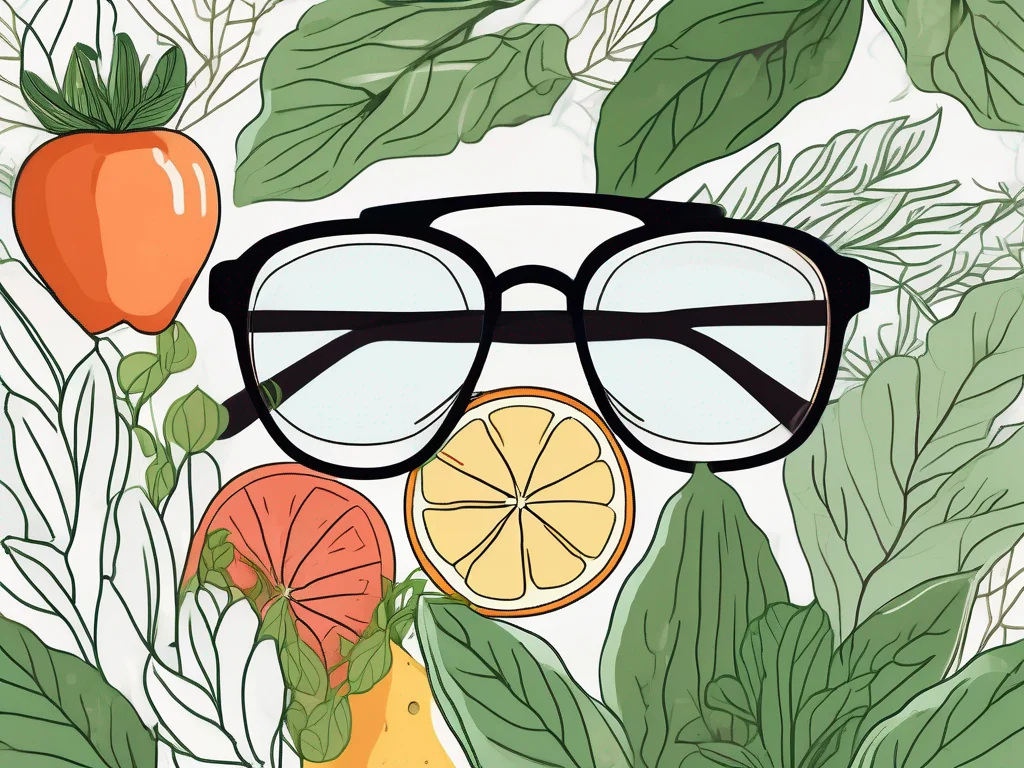Double vision, or diplopia, is a condition where you see two images of a single object, impacting daily activities like reading or driving. While medical intervention is often necessary, natural remedies, diet, and lifestyle changes can support eye health and potentially alleviate symptoms. This guide explores how to manage double vision naturally, covering causes, symptoms, diet, exercises, and precautions.
What Is Double Vision and Its Causes?
Double vision occurs when the brain receives two different images from the eyes, resulting in overlapping or distorted vision. It can affect one eye (monocular) or both eyes (binocular) and may stem from various causes.
Common Causes of Double Vision
- Eye Muscle Issues: Weakness or misalignment in eye muscles can disrupt coordination, leading to diplopia.
- Refractive Errors: Conditions like astigmatism or uncorrected vision problems may cause double vision.
- Medical Conditions: Diabetes, multiple sclerosis, or brain tumors can affect nerves controlling eye movement.
- Lifestyle Factors: Excessive screen time, poor lighting, or dehydration may contribute to vision issues.
What Are the Symptoms of Double Vision?
Recognizing the symptoms of double vision is key to addressing it early. Common signs include:
- Blurred or overlapping vision
- Headaches or eye strain
- Difficulty focusing or concentrating
- Dizziness or balance issues
If symptoms appear suddenly or are accompanied by pain, seek immediate medical attention, as they may indicate a serious condition.
Diagnosis: An ophthalmologist may perform an eye exam, review medical history, or recommend imaging tests like a CT scan or MRI to pinpoint the cause.
How Does Diet Support Eye Health?
A nutrient-rich diet is essential for maintaining healthy eyes and potentially reducing double vision symptoms. Proper nutrition supports eye function and protects against oxidative damage.
Key Nutrients for Eye Health
- Vitamin A: Found in carrots and sweet potatoes, it supports low-light vision and prevents night blindness.
- Vitamin C: Citrus fruits like oranges strengthen blood vessels in the eyes and reduce cataract risk.
- Vitamin E: Nuts and seeds, such as almonds, combat oxidative stress.
- Omega-3 Fatty Acids: Found in salmon and mackerel, they reduce inflammation and promote tear production.
- Lutein and Zeaxanthin: Leafy greens like spinach filter harmful blue light from screens.
- Zinc: Present in lean meats and legumes, it aids vitamin A transport to the retina.
Foods to Include
Incorporate colorful fruits and vegetables, whole grains, lean proteins, and healthy fats. Staying hydrated is also critical, as it prevents dry eyes, which can worsen vision issues.
What Natural Remedies Can Help Double Vision?
Natural remedies can complement medical treatments by improving eye coordination and reducing symptoms.
Eye Exercises for Better Vision
Eye exercises strengthen muscles and improve focus. Try these:
- Focus Shifting: Stare at a nearby object, then shift to a distant one, repeating 10 times.
- Blinking Rapidly: Blink quickly for 20 seconds to lubricate eyes and reduce strain.
- Eye Rolling: Move eyes in circular motions to enhance muscle flexibility.
Perform these exercises daily for 10-15 minutes, but consult an eye specialist to ensure they suit your condition.
Herbal Remedies for Eye Health
Certain herbs may support vision:
- Bilberry: Rich in antioxidants, it protects the retina and improves night vision.
- Ginkgo Biloba: Enhances blood flow to the eyes, potentially reducing vision issues.
Always consult a healthcare provider before using herbs, especially if you’re on medication or have health conditions.
What Lifestyle Changes Improve Eye Health?
Simple lifestyle adjustments can prevent or reduce double vision symptoms by supporting overall eye health.
Regular Eye Check-Ups
Schedule comprehensive eye exams every 1-2 years to detect issues early. An optometrist will assess visual acuity, eye coordination, and underlying conditions.
Reducing Screen Time
Prolonged screen exposure strains eyes and may worsen double vision. Follow these tips:
- 20-20-20 Rule: Every 20 minutes, look at an object 20 feet away for 20 seconds.
- Adjust Screen Settings: Lower brightness and use blue light filters.
- Take Breaks: Step away from screens every hour to relax your eyes.
Other Tips
- Use proper lighting to reduce glare.
- Wear corrective lenses if prescribed.
- Practice good posture to avoid straining neck and eye muscles.
What Precautions Should You Take?
While natural remedies are beneficial, they have limitations and require caution.
When to Seek Medical Help
Consult a doctor immediately if:
- Double vision starts suddenly or worsens.
- You experience eye pain, headaches, or neurological symptoms.
- Vision changes persist despite lifestyle adjustments.
These could signal serious conditions like nerve damage or brain issues requiring urgent care.
Risks of Natural Remedies
- Not a Cure-All: Natural methods may not address underlying medical causes.
- Potential Interactions: Herbs like ginkgo biloba may interact with medications.
- Individual Differences: Remedies may not work for everyone, especially with pre-existing conditions.
Always discuss new treatments with a healthcare provider, particularly if pregnant, breastfeeding, or managing chronic illnesses.
How to Combine Natural and Medical Approaches?
For best results, integrate natural remedies with professional medical advice:
- Get a Diagnosis: Work with an ophthalmologist to identify the cause of double vision.
- Follow a Nutrient-Rich Diet: Support eye health with foods high in vitamins A, C, E, and omega-3s.
- Practice Eye Exercises: Use targeted exercises to improve muscle coordination.
- Adopt Healthy Habits: Reduce screen time, stay hydrated, and get regular check-ups.
- Monitor Symptoms: Track changes and report persistent issues to your doctor.
This holistic approach ensures you address both symptoms and root causes effectively.
Conclusion
Managing double vision naturally involves understanding its causes, adopting a nutrient-rich diet, practicing eye exercises, and making lifestyle changes like reducing screen time. While these methods can support eye health, they should complement—not replace—professional medical treatment. Always consult an ophthalmologist for a proper diagnosis and personalized plan. By taking proactive steps, you can improve your vision and enhance your quality of life.



